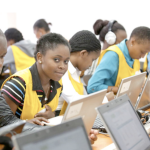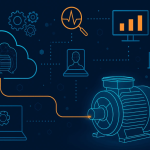As the fourth industrial revolution sweeps across the globe, artificial intelligence (AI) and machine learning (ML) are emerging as transformative forces reshaping how societies operate. For Africa, a continent facing both developmental challenges and immense potential, AI and ML represent a unique opportunity to leapfrog traditional obstacles and accelerate progress across vital sectors. From agriculture and healthcare to finance and education, these technologies are laying the foundation for a smarter, more inclusive digital future.
AI and ML: The Power to Solve Africa’s Unique Challenges
Africa’s vast geography, diverse cultures, and economic disparities make it a complex region to develop uniformly. Yet, AI and ML offer scalable solutions that can adapt to local realities. In healthcare, for example, machine learning algorithms are already helping to predict disease outbreaks and diagnose conditions using medical imaging technology that can be deployed even in remote rural clinics. AI-powered chatbots are also helping bridge the doctor-to-patient gap by offering preliminary diagnoses or mental health support through mobile phones.
In agriculture, AI is revolutionizing farming practices. Tools like satellite-based crop monitoring and AI-driven soil analysis allow farmers to optimize inputs, reduce waste, and boost yields. This is particularly important in a continent where food insecurity remains a pressing concern. Startups like Nigeria’s Zenvus are already using sensors and machine learning to help smallholder farmers make data-driven decisions that improve productivity and profitability.
In the financial sector, AI and ML have improved credit scoring, fraud detection, and customer service, opening up access to finance for millions who were previously excluded. Mobile money platforms are leveraging AI to understand user behavior and offer micro-loans and financial products tailored to underserved populations. This financial inclusion is not just transformative for individuals it is a catalyst for broader economic empowerment.
Lessons from the World: How AI is Reshaping Economies Globally
While Africa is still in the early stages of AI adoption, other regions provide a roadmap of what’s possible. In the United States, AI underpins everything from personalized advertising to autonomous vehicles. Companies like Tesla, Google, and IBM have embedded AI into their business models, redefining innovation and productivity. The U.S. government has also made substantial investments in AI research, recognizing its potential to influence everything from defense to education.
In China, the government’s AI development strategy has propelled the nation into becoming a global leader. With smart cities, facial recognition for public safety, and AI-based traffic control systems, China has demonstrated how large-scale AI deployment can improve urban life. Similarly, India has used AI to enhance its public service delivery, particularly in agriculture and healthcare. Its AI-for-All strategy has made technology accessible to rural communities and driven a massive upskilling campaign to train its youth in AI-related fields.
These examples highlight the need for a strong ecosystem that includes policy support, educational reforms, industry investment, and research. Africa must follow suit by creating an enabling environment that nurtures innovation, ensures ethical AI practices, and builds homegrown solutions tailored to its unique context.
The Urgency of Building AI Capacity in Africa
Despite the promise, one of Africa’s biggest challenges remains a lack of skilled human capital in AI and machine learning. There is a glaring gap between the rapid pace of technological advancement and the availability of local talent to drive these systems. Without deliberate and strategic efforts to build capacity, Africa risks becoming merely a consumer of foreign AI solutions rather than a creator.
The development of AI should be anchored in African priorities whether that means using natural language processing to support indigenous languages or designing machine learning models that account for local data realities. This requires African universities, research institutions, and private organizations to invest in building technical expertise and supporting innovation.
Fortunately, there is growing momentum. Initiatives such as Deep Learning Indaba and Data Science Africa are creating platforms for African researchers and practitioners to collaborate, share knowledge, and build capacity. These grassroots movements must be supported by more formal training initiatives that reach wider segments of society, including women and marginalized communities.
GARDI: Catalyzing Africa’s AI and ML Readiness
One institution leading the charge in preparing Africa for an AI-driven future is the Global Academy for Research and Data Insights (GARDI). Through its diploma and certificate programs in artificial intelligence, machine learning, and data analytics, GARDI is empowering a new generation of African professionals with the skills needed to build, apply, and manage intelligent systems.
Unlike many generic training initiatives, GARDI’s programs are specifically designed for African realities. They incorporate contextual case studies, use locally relevant data, and emphasize practical skills development in tools such as Python, TensorFlow, and machine learning libraries. This ensures that graduates are not only technically proficient but also capable of applying their knowledge to solve real problems in sectors like agriculture, health, logistics, and governance.
Moreover, GARDI’s emphasis on accessibility through online and blended learning models ensures that learners across urban and rural areas can gain critical AI skills. The institution also promotes collaboration with industry experts, government bodies, and research centers, facilitating a vibrant ecosystem where ideas are tested, refined, and brought to scale. As AI becomes central to Africa’s economic future, GARDI’s role in shaping a skilled, ethical, and innovative workforce is both timely and transformative.
Africa’s Future: Powered by Intelligence, Driven by Innovation
Africa stands on the cusp of a technological awakening. If properly leveraged, AI and machine learning can accelerate development, improve lives, and drive inclusive growth. However, this potential can only be realized if the continent invests in its people its greatest resource. Through education, innovation, and strategic partnerships, Africa can not only catch up but leap ahead in the global AI race.
Institutions like GARDI are showing the way forward. With the right vision, leadership, and support, Africa’s digital future can be one that is intelligent, equitable, and proudly African.
Disclaimer: This article was written by Kudzayi Ziki, the President of the Global Academy for Research and Data Insights (GARDI). The views expressed herein are his personal opinions and do not necessarily represent the official position of GARDI or any affiliated institutions.




